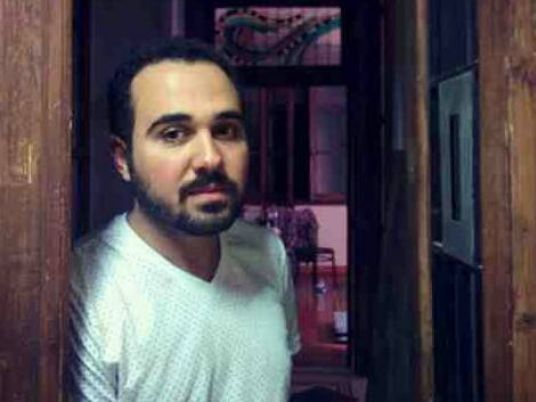In Abla al-Roweiny’s first editorial in Akhbar al-Adab, Egypt’s weekly literary journal, she writes about a different “space” that is the city today.
“The city is no longer the monopoly of concrete structures, passing cars and shops. Everyone has come to realize that the essence of the city’s space lies in its freedom.”
Roweiny only recently became the editor of Akhbar al-Adab. She’s been part of the state-run Al-Akhbar, which publishes a number of newspapers, including a widely circulated news daily, since 1976. Her appointment came after a strike staged by the weekly’s journalists to protest their new chief editor, Mostafa Abdallah, who was hired one month prior to the revolution, for his propagandist background and affiliation with the toppled regime. The crisis threatened the journal’s longstanding relations with established writers and artists in Egypt and the Arab World, who threatened to boycott if Abdallah continued in his post.
Roweiny celebrates her appointment as a precedent in the history of Egyptian journalism – that reporters in a state-run institution have a say in who becomes their chief editor. But precedence aside, her presence as head of Akbar al-Adab recalls the journal’s nuanced position: while being part of a state-run media house, its content has been traditionally critical of the state institution, particularly the Ministry of Culture.
The journal’s pages have long been the platform of various culture wars, from conspicuous literary prizes to cases of censorship.
Since its inception in 1993, Akhbar al-Adab has been a platform for Arab and Egyptian – mostly literary – cultural production. Its pan-Arab attire has been dubbed as a virtual meeting point for Arab intellectuals both regionally and abroad. Its translations of international works revitalized a tradition that rested at the heart of the Arab quest for enlightenment, probed by the production of culture across borders and curiosity around the understanding of this cultural production. Going against an uproar of criticism, Akhbar al-Adab ventured into translating Israeli literature, which was held as a form of normalization. The move came in the context of heated debates about cultural, political and economic boycotts against Israel for occupying Palestinian lands.
“Any Arab or Egyptian intellectual would normally be inclined to the values of enlightenment, rationalism and secularism,” Roweiny told Al-Masry Al-Youm.
The new Akhbar al-Adab, previously run by novelist Gamal al-Ghitany, made it to newsstands last Sunday in a new design themed around the experience of revolution. It featured a work by Uruguayan novelist Eduardo Galeano. Released in 2009, Mirrors: Stories of Almost Everyone recounts the story of the world through Galeano’s brief vignettes weaving past with present and politics with art to draw a speculative reading of history. In an introductory note, the translator, Salah Almany, writes how human revolutions are the savior for what Galeano considers “the ability of storytelling born to fear of death.”
Besides cultural production, the new Akbar al-Adab also features issues of cultural politics, reports on state-run publishing initiatives, and corruption during Mubarak’s regime. The reports revitalize the journal's practice of institutional critique.
Today, Roweiny is enthusiastic about her journal.
“The general environment allows for a lot of hope and confidence in working and defending progressive ideas,” she said. The rise of Islamism does not threaten progressive thought, she said. For her, the key exercise is to continue engaging with society through her journal in a constant quest to challenge “silence, indolence, dependency and ignorance.”
Roweiny, who is in her fifties, was born to a Nasserite family and was married to the renowned poet Amal Dunqol. She says he has been critical in forming her relation with the world and her literary consciousness. Dunqol wrote for years in the 1960s and 1970s, adding layers of meaning and possibility to modern Arab poetry. His generation, dubbed the generation of the 1960s, was influential in shaping an engaging cultural movement that questioned reigning traditions of production.
At the end of the journal’s new issue, columnist Wael Abdel Fattah asks whether Egypt’s revolution will continue, imbuing the spirit of rebellion into the nation's heritage, longstanding traits of which are silence, indolence and ignorance, as Roweiny puts it.
“You and me keep looking for the square once more,” he writes, referring to Tahrir Square, a central gathering point for protesters during the revolution. The return of an emancipated Akhbar al-Adab is evidence, perhaps, that the square has been found.


